- News
- Reviews
- Bikes
- Components
- Bar tape & grips
- Bottom brackets
- Brake & gear cables
- Brake & STI levers
- Brake pads & spares
- Brakes
- Cassettes & freewheels
- Chains
- Chainsets & chainrings
- Derailleurs - front
- Derailleurs - rear
- Forks
- Gear levers & shifters
- Groupsets
- Handlebars & extensions
- Headsets
- Hubs
- Inner tubes
- Pedals
- Quick releases & skewers
- Saddles
- Seatposts
- Stems
- Wheels
- Tyres
- Tubeless valves
- Accessories
- Accessories - misc
- Computer mounts
- Bags
- Bar ends
- Bike bags & cases
- Bottle cages
- Bottles
- Cameras
- Car racks
- Child seats
- Computers
- Glasses
- GPS units
- Helmets
- Lights - front
- Lights - rear
- Lights - sets
- Locks
- Mirrors
- Mudguards
- Racks
- Pumps & CO2 inflators
- Puncture kits
- Reflectives
- Smart watches
- Stands and racks
- Trailers
- Clothing
- Health, fitness and nutrition
- Tools and workshop
- Miscellaneous
- Buyers Guides
- Features
- Forum
- Recommends
- Podcast
news
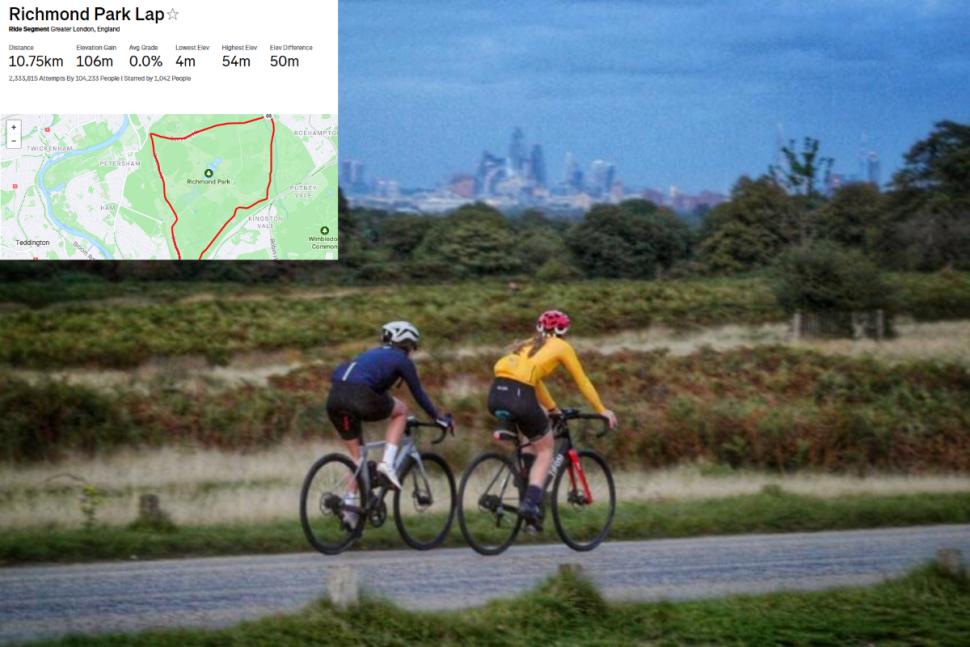 Richmond Park Strava segment (Simon MacMichael/Strava)
Richmond Park Strava segment (Simon MacMichael/Strava)Strava rejects call to remove Richmond Park and Regent's Park cycling segments, insists critical Royal Parks "have directly acknowledged Strava is not root cause of issues"
An "open dialogue" between Strava and the Royal Parks charity that runs London green spaces Richmond Park and Regent's Park has seen the ride-sharing app ultimately reject calls to remove cycling segments in the parks.
It is the latest chapter in the long-running and ongoing story about cycling in the Royal Parks, whose Richmond Park and Regent's Park green spaces are popular with the capital's cyclists and attract a large number of two-wheeled visitors throughout the year.
However, the Royal Parks has raised safety concerns following a May inquest into the death of a pedestrian who was hit by a cyclist riding laps of Regent's Park back in 2022.
In the months since, the charity has been outspoken about cyclists riding "at excessive speeds" and causing crashes, subsequently reviewing its cycling policies and cancelling early-morning time trials and the London Duathlon — as well as more recently calling for government to pass new laws so cyclists can be prosecuted for exceeding 20mph speed limits in the parks.
It is to that context that the latest Royal Parks cycling story emerged in the Telegraph this weekend, the newspaper having published multiple previous articles on this year's events.
The latest update is that Strava is not removing segments from Regent's Park and Richmond Park, the ride-sharing app rejecting the Royal Parks' claim that they encourage cyclists to ride dangerously and as fast as possible.
In fact, a Strava spokesperson pointed out that there has been an "open dialogue" with the Royal Parks and "they have directly acknowledged that Strava is not the root cause of the issues".
"We have also shared with them how to mark a segment as hazardous, which remains the most effective tool for flagging safety concerns," the spokesperson added.
In emails reported by the Telegraph, the Royal Parks reportedly asked Strava to prevent segments in the parks as it creates a "competitive element to those seeking to better their last lap or segment".
Responding, Strava rejected this and said removing segments "would not accomplish" the Royal Parks' "intent to reduce cycling competition".
"Strava does not remove segments created by the community as to do so would destroy their efforts and go against our goal to inspire the community to be active while remaining safe," the email response reportedly said.
Strava also explained how "hazardous" segments could be flagged to "warn users of risks" and "remove the element of competition".
The final email, a reply from the Royal Parks, said: "Royal Parks themselves are owned by the sovereign in right of the Crown and none of the roads or footpaths is a public highway. It is the considered view of the charity as land manager that the cycling segments on the Strava app are encouraging significant numbers of sports cyclists to compete with each other and is thus encouraging them to cycle at excessive speed which endangers other parks users.
The charity "instructs" Strava to remove all segments as it is "unreasonable" for them to "flag probably hundreds of segments on your app". Its lawyers are writing to Strava's chief executive Michael Martin.
Media and political discussion around cycling in the Royal Parks began back in May, following the widely reported inquest into the death of elderly pedestrian Hilda Griffiths, who died in hospital in 2022 from injuries sustained two months earlier in a collision involving a cyclist riding laps of Regent's Park as part of a group ride travelling at between 25 and 29mph.
Ms Griffiths' son, Gerald, commented that Strava had "shown contempt by ignoring to remove the parks from their app".
He told the Telegraph: "I think the competitive nature Strava creates breeds an attitude of entitlement among some cyclists, especially in Regent's Park where people compete for faster lap times. The repetition of doing laps breeds a familiarity that then breeds contempt for anyone who dares to get in the way of some cyclists.
"Strava has shown similar contempt to Royal Parks by ignoring their requests to remove the parks from their app."
In May, Strava was asked to remove the lap of Regent's Park segment from its app by the Royal Parks. The tech company urged users to "prioritise everyone's safety" and pointed out that "hazardous" segments can be flagged.
A spokesperson told us at the time:
We are aware of the tragic cycling incident which occurred in London's Regent's Park in June 2022 and our condolences go to the victim's family.
At Strava, safety of our active community and those around them is a priority, and we have community standards that note that 'sports happen in dynamic environments that we share with motorists, pedestrians, other people, equestrians, pets and wildlife'. Strava expects those in our community to 'prioritise everyone's safety and enjoyment of our shared resources and respect the law'. The behaviours related to this incident violate Strava's 'community standards'.
At the end of last week, we received a request from Royal Parks to discuss the cycling route segment where the incident occurred. The ability to flag a cycling route segment as hazardous already exists in Strava. Anyone can report a segment that they would deem as hazardous. If segments are flagged as hazardous, achievements are not awarded for that segment and leaderboards are disabled. Any Strava community member who cycles on that same route segment will receive a warning of the hazards on that segment.
At the end of that week Strava segments were further thrust into the spotlight when a bizarre piece made it onto the Telegraph's front page, the reporters responsible told "check your research" after claiming cyclists are hitting 52mph chasing London Strava segments... despite that being faster than Olympic track cyclists.
In August, the press regulator IPSO ruled that the Telegraph breached its Editors' Code with the inaccurate piece and that "further steps should have been taken to either verify the figure – for instance, by contacting Strava – or to appropriately distinguish it as an unverified figure".
Last month, a column titled 'Let's get tough on the scourge of rogue cyclists' appeared in the newspaper, accompanied with a blurred picture of cyclists that attracted accusations of manipulating photos of "law-abiding people exercising".
The Royal Parks' interest in cycling in its parks has continued throughout the second half of 2024, the charity recently asking the Labour government to pass new laws to "set speed limits for cyclists" in its parks and for riders above 20mph limit to be prosecuted.
Discussion around speed limits in the Royal Parks, notably Richmond Park, has been long running. Despite initially suggesting speed limits did apply to cyclists, in 2021 it was confirmed that the park's speed limits (which range from 5mph to 20mph) do not apply to cyclists, a stance in line with the wider law.
Then, in the summer of 2022, The Royal Parks said that even if the speed limits do not apply to cyclists, riders would still have action taken if they ride "recklessly".
In July, we reported that a group claiming to represent cyclists who use the park (Richmond Park Cyclists) had clashed with the charity over its speed limit advice for riders using the park.
This summer's Richmond Park Time Trials were also cancelled by The Royal Parks. Organised by the London Dynamo cycling club and first run in 2009, they were due to take place on 23 June and 7 July this year – and had been praised for their inclusivity and for providing a gateway into the sport, enabling beginners to compete on road bikes and on almost traffic-free roads due to their 6am starts.
However, the Royal Parks cancelled this summer's events over fears riders would break the park's 20mph speed limit, a decision which left organisers "fuming" and arguing the decision had been clouded by "very irresponsible journalism" and that the alternative is "busy roads and fast-moving cars".
"Following several cycling-related incidents, it is our duty to take action to minimise the risk of accidents and our priority to ensure the safety of all cyclists together with other visitors," Richmond Park's manager said. September's London Duathlon in the park was subsequently also cancelled.
The Royal Parks has received plenty of criticism over the years for its approach to improving road safety in its parks. Many, including the London Cycling Campaign (LCC), have repeatedly asked why through-traffic is still allowed to use Richmond Park as a shortcut, the campaign calling the cancellation of well-organised events "weak" while "daily rat-runs" continue.
While some of Richmond Park's roads are closed to motor traffic on weekends, during weekdays the green space, which the Royal Parks proudly calls an "extraordinary landscape" that is also London's largest Site of Special Scientific Interest and a National Nature Reserve, is used as a cut-through for motorists driving between Kingston upon Thames, Richmond and Roehampton.
[Queue for parking on a sunny summer weekend in Richmond Park]
The LCC has campaigned for the park to be closed to through-traffic for years, arguing it would improve road safety and make them "far better for people walking, cycling and relaxing in".
Specialist cycling insurance provider ETA Services Ltd recently called it an "ongoing embarrassment" that the Royal Parks "allows this nature reserve to be used as a rat-run", the comments coming in response to the incident below.
Dan is the road.cc news editor and joined in 2020 having previously written about nearly every other sport under the sun for the Express, and the weird and wonderful world of non-league football for The Non-League Paper. Dan has been at road.cc for four years and mainly writes news and tech articles as well as the occasional feature. He has hopefully kept you entertained on the live blog too.
Never fast enough to take things on the bike too seriously, when he's not working you'll find him exploring the south of England by two wheels at a leisurely weekend pace, or enjoying his favourite Scottish roads when visiting family. Sometimes he'll even load up the bags and ride up the whole way, he's a bit strange like that.
Latest Comments
- HLaB 2 hours 26 min ago
It's hopefully an urban myth but I heard it was designed that way on purpose, so the cyclepath captured any flooding and the busway would remain clear
- mdavidford 2 hours 28 min ago
I should imagine eating chopsticks anywhere could be potentially rather perilous.
- wtjs 2 hours 29 min ago
In practice, the expletive-deleted police here do nothing at all when the 'clearance' is demonstrably 1/3 of this '1.5 metres or less- see the Audi...
- Rendel Harris 2 hours 46 min ago
When The Badger stopped for protesters (albeit dockworkers rather than farmers) it was their stress gauges rather than his that would have been...
- mdavidford 2 hours 47 min ago
Never mind that. More importantly, since when does a bike lock qualify as a 'tool'?
- wtjs 2 hours 43 min ago
there are far more decent Audi drivers then those who give that brand it's current appalling reputation for bad driving...
- Eurodolphin 3 hours 32 min ago
Having experienced a brain injury (while my helmet only suffered a little crack) I welcome all this excellent research which looks for ways to...
- mattw 3 hours 35 min ago
Nope. Has anyone ever bought a wheel trim studded with diamonds for their car? Thought not.
- David9694 3 hours 58 min ago
Dad of William Brown Jr battles Folkestone Town Council over illuminated sign featuring late son’s picture...
- Disgusted of Tunbridge Wells 5 hours 5 min ago
All ebikes are equal... But folding ebikes are more equal than others?...
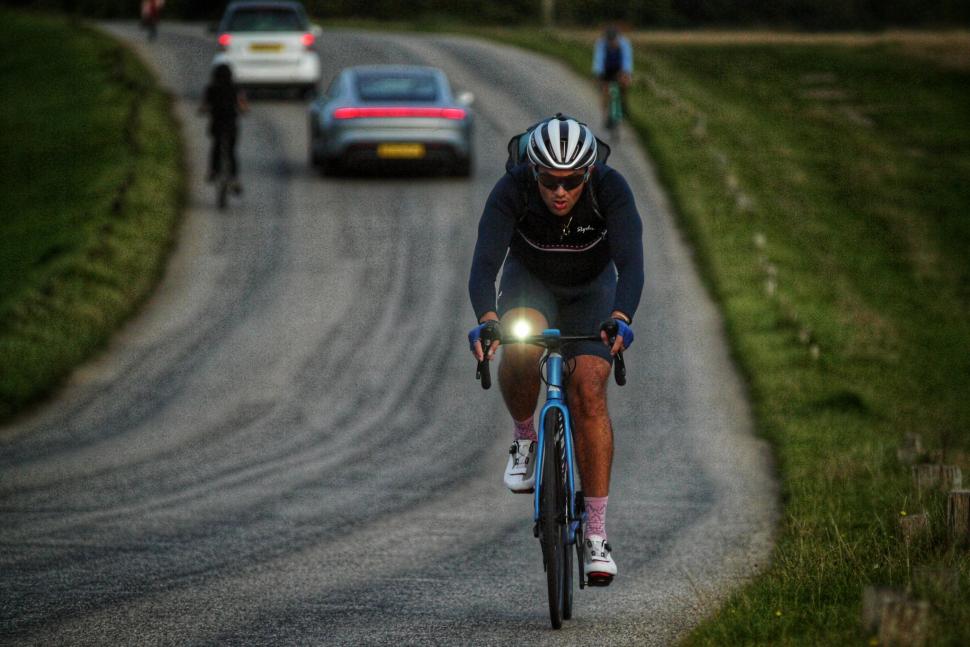
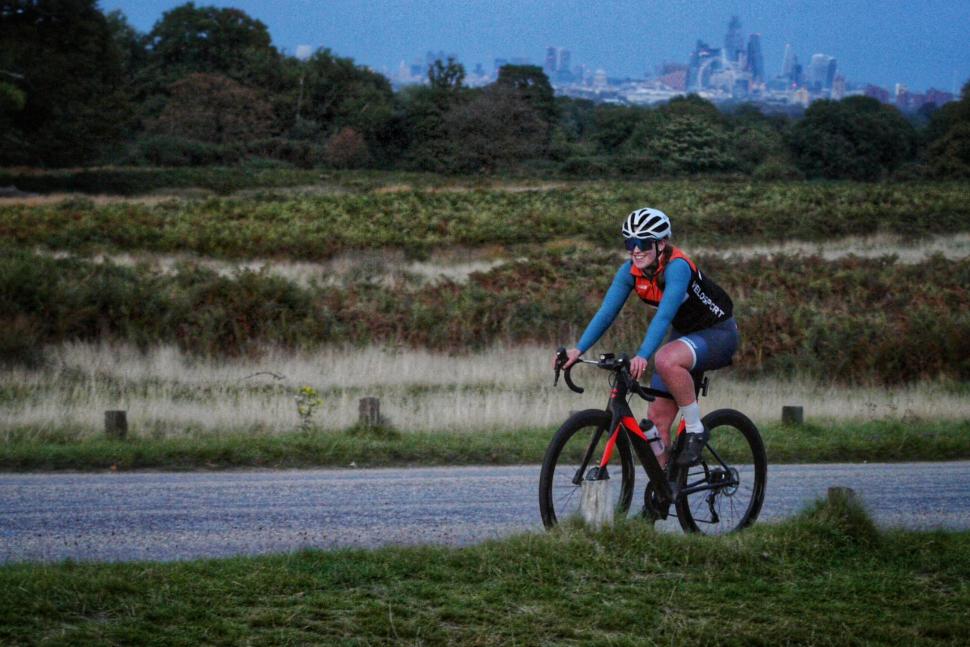


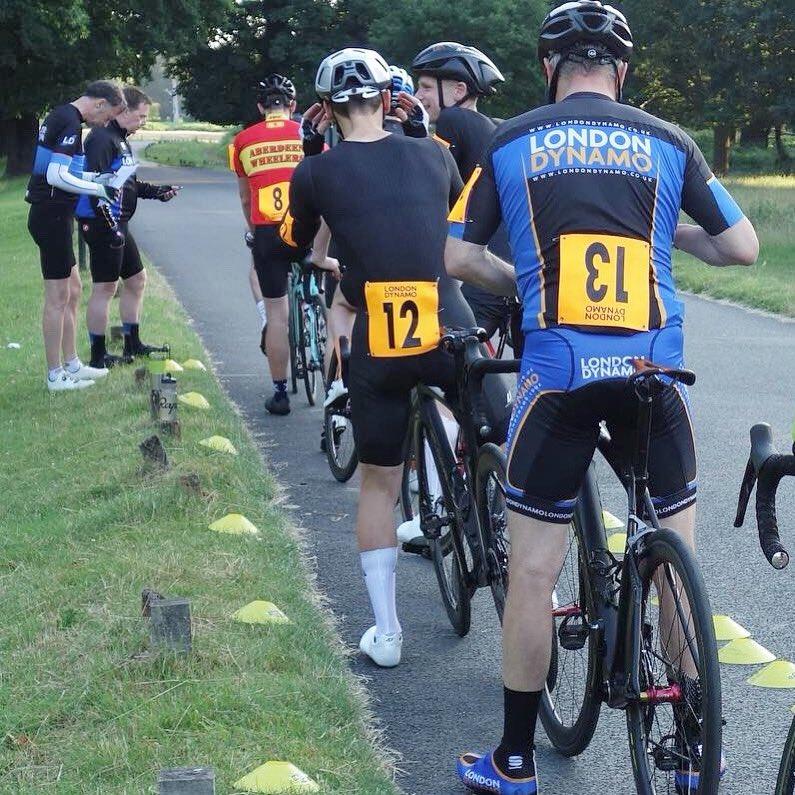
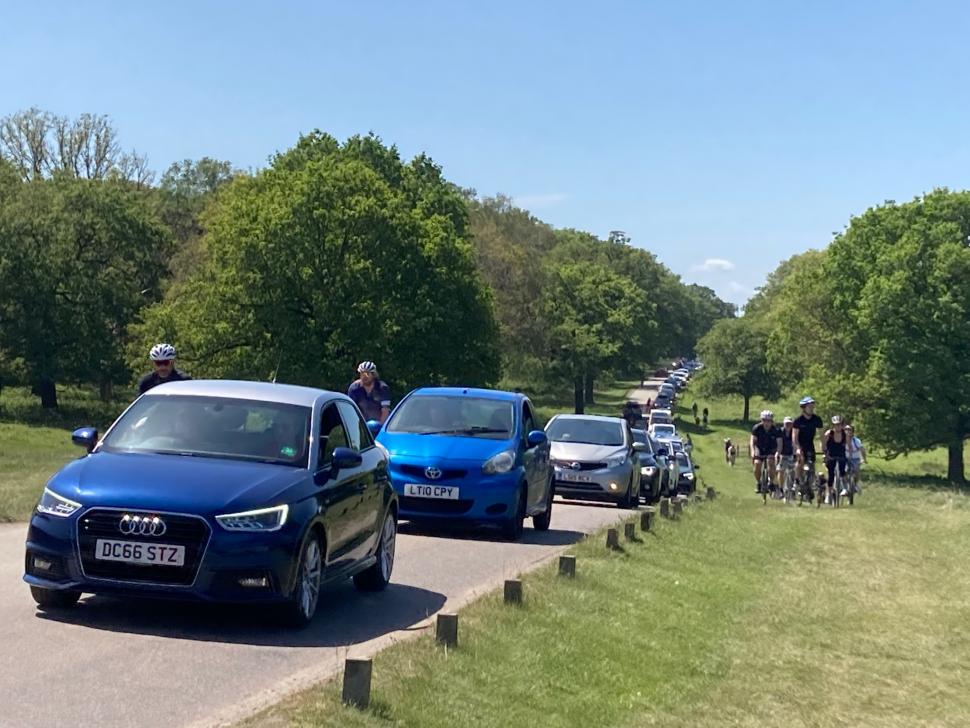
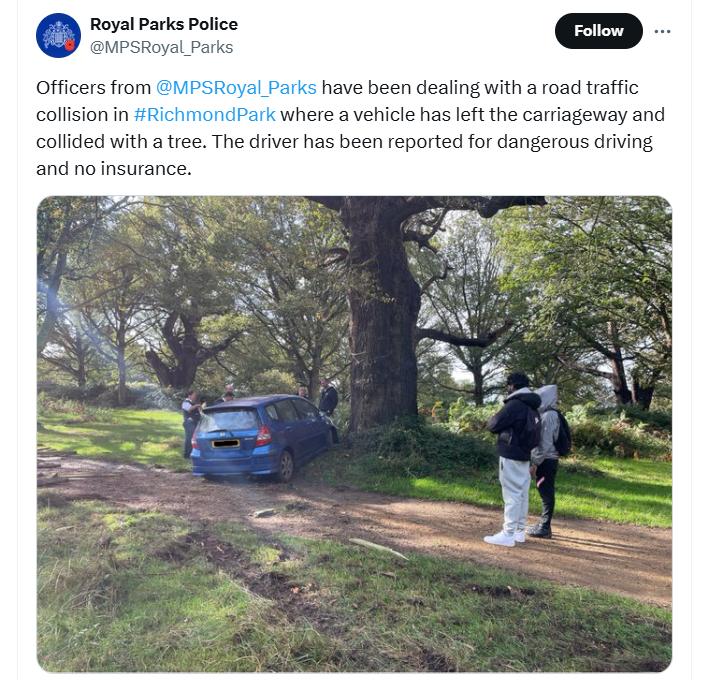
Add new comment
17 comments
I love the irony of this. The Met was stopping and warning/prosecuting speeding cyclists under the RP Regs, but the RP insisted that (despite the opinions of the Met's legal counsels) that speed limits did not apply to cyclists, so the Met gave up!
So they had the law and the ability to enforce it, but messed it up! How that has come back to bite them!!! 🤣
The Telegraph follows the money, that mainly being tax avoidance and big oil.
So wind turbines, EVs, cyclists and protectors of values all get stick from them.
With it steering ever more off-piste, 'Foreign entity' I safely call it.
Breeding three times in one sentence, must be a lot of fun for cyclists in the parks!
Removing Strava segments won't impact on people trying to achieve a PB.
I know of one rider that was seriously injured trying for a lap PB on a TT bike. He collided with another cyclist on a roundabout where the other cyclist had right of way.
You would hope common sense and self preservation would come into play.
Safe riding...
TTs can be dangerous regardless of the location, as you know.
And as cgfw201 says below, people are capable of behaving like dickheads regardless of their mode of transport. The Royal Parks' behaviour towards cyclists suggests that their recreational use of these spaces is not welcome.
Just add a new bylaw limiting cyclists to 20 mph in the Royal Parks and use average speed cameras to more effectively regulate the speed of drivers and cyclists alike. My experience crossing as a pedestrian from the park to the cafe/toilets is that motorists are more likely to slow to a stop and wave you across than 'serious' cyclists. Arrogant cyclists are much less dangerous than arrogant drivers but they can be just as unwilling to share space with lesser mortals.
The issue you highlight is one with people, not with cyclists. Whatever the context, a small % of the people will essentially be d1ckh3ads. The issue is that cyclists tend to be an annoyance, the ones in cars are the reason ham gate was obliterated earlier in the year and why half of regent's parks lamp posts have been knocked down and rebuilt.
Not to mention, bikes don't come with speedos or numberplates, so speed cameras are a proper pipe dream.
Average speed cameras wont stop speeding to squeeze past cyclists.
Just make it that you can't use the park as a through route, you can only go to 2 car parks from an entrance.
For me, 20mph is about as fast as I get on the flat on my bike, and about as slow as I go in the car on a clear road. It's no effort for me to slow and stop for a pedestrian when I'm driving, but a huge effort for me to do that on my bike.
That's leaving aside the desire to put in an effort to demonstrate to myself that my fitness is improving and go all out to beat my previous time, to have that effort wasted because somebody can't wait two seconds for me to pass.
So how would you impose speed limits on a form of transport that doesn't have (or at least doesn't legally have to have) a speedometer, and how would an average speed camera have any applicability to a form of transport that doesn't carry registration numbers?
Oh! I know these ones! Is it "if they're going as fast as a car that's too fast" and "tabards"?
Irrespective of the fact that bikes don't have licence plates or other means of identification, your approach won't work. Richmond Park isn't flat and cyclists can't just use an accelerator to smooth out their speed on an uphill section. Most will stay easily within the 20mph average whilst cycling at 'dangerous speeds' on the flats.
This is hilarious. The old heads in The Royal Parks will be fuming.
Royal Parks are nothing but a bunch of middle and upper class nimbys that loath cyclists and love drivers and SUV's. The only way cars will be banned in the park is if cyclists are banned too. Which is why they are kicking up a fuss about Regents Park. Their reaction to that incident makes no sense at all, when drivers have hurt people with their cars in Richmond Park, and even destroyed a 100+ year old gate (Ham Gate).
They'll ban cars when they can get away with banning cyclists. Mark my words.
And use Komoot..! 😜
Instead of removing Strava segments, could we remove motor vehicles from these parks?
Yes, the simplest and best solution - but almost impossible to implement. Tells you all you need to know about Royal Parks, doesn't it?
And dogs, as well as their owners who are responsible for their mutts' deadly actions.
www.bbc.co.uk/news/videos/c1mr9gn9jkpo